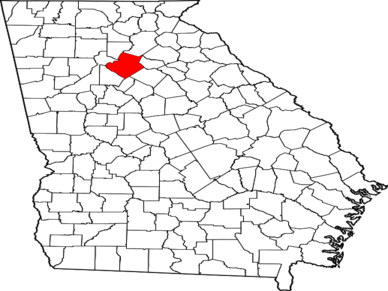
by Georgia Center for Opportunity | Jul 10, 2017
By: Randy Hicks and W. Bradford Wilcox
Although young men and women are taking what seems like a dizzying array of paths into adulthood these days, one path stands out as maximizing their shot at the American Dream: what scholars Ron Haskins and Isabel Sawhill have called the “success sequence.” The sequence is a three-pronged formula for success in America: graduate from high school, get a full-time job (or have a partner who does), and then marry before having children. Now, a joint report by the American Enterprise Institute (AEI) and the Institute for Family Studies (IFS) shows this “success sequence” works for Millennials as well.
Released last month, the report tracked how an astounding 97 percent of the oldest Millennials (ages 28-34) who follow this threefold success sequence avoid poverty. In contrast, 53 percent of young adults who didn’t follow the sequence at all are in poverty. Moreover, those who delayed childbearing until after marriage are more likely to not only survive financially, but thrive—finding themselves in the middle or upper third of income earners.
These data hold true regardless of family background, socioeconomic status, or race. Seventy-six percent of African Americans and 81 percent of Hispanic young adults who marry first are in the middle to upper third of income distribution, alongside 87 percent of whites. And 71 percent of Millennials who grew up in households in the bottom third of income distribution but put marriage before the baby carriage had the same economic fortune.
Here’s the message for Millennials—success in America is partly grounded on the three pillars of work, education, and family. But what about young people who struggled with one or more of these steps? Over half of Millennials have already become parents prior to marriage, many remain underemployed, and 53 percent of young adults who have not followed the sequence at all are in poverty.
Closer to home, Atlanta scored horrifically low for social mobility among low-income individuals, according to a joint Harvard and Berkeley study, even though middle-class job growth in Atlanta is strong. In our metro area, poverty rates remain unacceptably high, particularly for minority populations. Even though young adults in the metro Atlanta area are about equally likely to miss steps in the success sequence as their counterparts nationwide, young adults in the state of Georgia are more likely to miss at least one step in the success sequence, compared to young adults in the nation as a whole (46 percent versus 44 percent).
However, for both young and old, this new research isn’t justification for giving up on those who have missed one or more steps on the sequence. Instead, we need to understand that each part of the success sequence can work to help individuals; it’s never too late to get life back on track.
For children caught in multi-generational cycles of poverty, a good education can be a stick in the spokes of the poverty cycle that slows it down; for an adult, it’s a job; and for couples, it may be relationship enrichment programs and other supports. When all three parts of the success sequence work together, however, we begin to see significant results in boosting opportunity for the rising generation.
Many of these solutions must come locally. Mr. Hicks’ organization, the Georgia Center for Opportunity, has been spearheading numerous efforts to bring together local employers, community leaders, schools, churches, and nonprofits to advance vocational training and apprenticeships for workforce development, expand education options for the most vulnerable children, and promote marriage enrichment initiatives to help families flourish.
Here’s the bottom line: While no statistical model can predict an individual’s future success perfectly, we can know what’s more likely to happen. The AEI-IFS report points to what both common sense and experience have already told us: particular paths into adulthood are more likely to give individuals a shot at flourishing than others.
At the same time, it’s crucial to acknowledge that everyone who doesn’t follow the success sequence isn’t destined for failure or disaster. Neither does it suggest that every child born into better conditions is guaranteed success. All the success sequence tells us is what paths are most advantageous for human flourishing.
And it forces us to ask some serious questions: If we care about people, are we not duty-bound to communicate the message of the success sequence, and to do what we can to remove barriers to a quality education, fulfilling work, and a stable family life?
W. Bradford Wilcox is the director of the National Marriage Project at the University of Virginia and a coauthor of The Millennial Success Sequence.

by Georgia Center for Opportunity | Apr 24, 2017
In a recent project spearheaded by the Center of the American Experiment, Georgia Center for Opportunity’s President and CEO, Randy Hicks, tackled the one topic even politicians and religious leaders are shying away from – family fragmentation.
The written symposium “Was Trump and Clinton’s Campaign Silence Regarding Family Fragmentation Golden?” is a collaboration of thirty writers answering two questions.
1. “Was Trump and Clinton’s campaign silence regarding family fragmentation golden?
2. Or was it leaden, especially when it comes to reducing poverty, improving education, and reversing crime?”
Click here to see the full essay.

by Eric Cochling | Mar 23, 2017
We know that to avoid poverty, it is essential to get a high school diploma, maintain a steady job, and marry before having children (see research from the Brookings Institution and Harvard University on these points). Not only are they key to avoiding poverty, upward mobility and financial stability are closely tied to this family-education-work sequence, as well.
That is why our recent reports are so disturbing. They show that most of our welfare programs are systematically undermining two of the three keys to avoiding poverty and are doing so for some of the most vulnerable groups in our society.
In the first paper, Disincentives for Work and Marriage in Georgia’s Welfare System, we show that many of our welfare programs – alone or when combined –actually penalize earning more and create dramatic “welfare cliffs”.
For many parents on public assistance, receiving a raise or working longer hours can result in dramatic reductions in welfare benefits, often completely erasing what they gain by working more or receiving a raise. Even worse, there are times when earning more money through additional work or a pay raise can result in less income to the family because government benefits are reduced so much all at one time.
When families find themselves in this position, they are effectively locked into dependency, unable to work themselves into self-sufficiency without having to endure sometimes long, crippling periods of financial hardship.
To make matters worse, a similar set of perverse incentives exist when a parent on welfare decides to marry.
For many moms on public assistance for example, deciding to marry a boyfriend or the father of their children can mean that family income is dramatically reduced due to an immediate and steep loss of benefits. In many cases, the disincentives to marriage only go away if the potential husband is earning much more money than would be expected or likely under the circumstances. The result is that these moms must choose between forming a family (and the financial and relational stability it can bring in the long-term) or the short-term financial health of their families.
For a parent in this position, it is easy to see why many would simply choose to stay single and cohabit rather than marry. Unfortunately, research also shows that cohabiting couples struggle with relational instability in ways that married couples do not, so the welfare system ends up encouraging people to enter into relationships that are less likely to last and less likely to provide the stability that would allow them to escape poverty.
While the welfare system was not intentionally designed to work this way, it is unjust nonetheless. If it worked as it should, the system would encourage work and family formation at every turn – as the surest antidotes to poverty.
That is why in our next report, we will be setting out a suggested set of reforms that the state and federal governments can adopt to reform the system in a way that creates a sustainable safety-net that encourages the behaviors that we know are needed for individuals and families to escape and stay out of poverty. We will also be providing a plan for a how a state can implement these reforms on the ground if it chooses to take on reforming the system.
If you want to see how the welfare cliff works for different family types and in each of Georgia’s 159 counties, visit www.welfarecliff.org.

by Eric Cochling | Feb 1, 2017
National Marriage Week will be celebrated next week, just in time for Valentine’s Day. The celebration is now in its eighth year and seeks to foster collaboration around the country to “strengthen individual marriages, reduce the divorce rate, and build a culture that fosters strong marriages.”
The Marriage Week campaign website cites to tons of research on the many benefits of marriage and they have provided a list of events taking place in Georgia next week to celebrate marriage.
At GCO, we believe marriage is indispensable to the creation of healthy families and a stable society. That’s why we encourage you to love your family, teach your children to value marriage and the commitment it requires, and to take part in next week’s celebration.
If you want to strengthen your own marriage, check our Healthy Families Initiative and the resources we offer there.

by Georgia Center for Opportunity | Aug 31, 2016
Computational model exposes severe problems with the welfare system
Previously, it was shown how a single mom with two kids in Gwinnett County could lose welfare program benefits by earning more money. This explained why $9 + $1 can equal negative $6,000.
The Gwinnett county example showed only two wage levels. However, the computer model provides results for a large range of wage levels and family structure. This enables policymakers, administrators and interested citizens to see a more complete picture of the challenges facing a family in poverty.
The computer model can generate scenarios in any of the other 158 counties in the state of Georgia.
No matter the county welfare cliffs (that unintended consequence of the current welfare system whereby an individual or family loses by earning more) can be found – essentially trapping families into a level of income.
These cliffs can be clearly seen on the chart below. Wherever there is a drop in a line, there is a loss in benefits that exceed the gain in earned income.
Also clearly seen, the benefit levels are very high and the severity of the cliffs significant. More surprisingly, there is not just one cliff but a series of cliffs that cascade down.
The chart shows that when government benefits are taken into account, it is financially better for a single mom to earn an hourly wage of $9 than an hourly wage three times as much, or $27 per hour.
Of course, it is important to point out that the severity of the cliffs and the income levels where they drop off change depending on the county, the characteristics of the family, and other factors.
These findings underscore the need to undertake fundamental welfare reform beyond the various reforms already being implemented. The system needs to become more rational so not to punish families who try to get ahead by earning more money.
A forthcoming study will highlight other examples.
Chart showing welfare cliff for typical family in Gwinnett County:

How to read the chart: The chart above illustrates the scenario highlighted in this and the prior posts , that is, a single mom with two children in Gwinnett county. The horizontal axis is gross earned income, and the vertical axis is the sum of net earned income plus the various welfare assistance benefits. The first line on the bottom is net earnings. The next line above is net earnings plus refundable tax credits. Each line stacked above adds another government benefit in the following order: TANF Cash, food benefits (Food stamps, free school meals and WIC food packages), housing (Section 8 Housing Choice Vouchers), subsidized child care (the CAPS subsidized childcare program), medical assistance (Medicaid and PeachCare), and Affordable Care Act subsidies.

by Georgia Center for Opportunity | Aug 25, 2016
Computational model exposes severe problems with the welfare system
Pop quiz: When does $9 + $1 equal –$6,000?
This may look like new math, but it is not.
This seemingly nonsensical equation illustrates the challenges faced by families who receive assistance from means-tested welfare programs.
In fact, these exact numbers come from a computer model I designed, which was sponsored by the Georgia Center for Opportunity. It evaluates financial incentives, or more precisely, disincentives embedded in our nation’s welfare system.
This computer modeling examined the potential case of a single mom with two children in Gwinnett County, Georgia. Using 2015 data, if she were offered the opportunity to earn $10 per hour instead of earning $9 per hour, she would lose nearly $6,000 in welfare benefits within a year’s time.
The reason for the loss is not due to her earned income. By increasing her earnings from $9 per hour to $10, she nets an additional $1,820 a year. The reason for the loss has to do with the way the welfare system is designed, or more accurately, the way it has been haphazardly put together over the past fifty years. At $9 per hour, the single mom would be eligible for the following means-tested programs:
the earned income tax credit ($5,419),
additional child tax credit ($2,000),
food stamps ($2,772),
free or reduced-cost school meals ($502),
WIC food packages ($480),
Section 8 housing choice voucher ($9,805),
subsidized childcare ($8,918), and
Medicaid ($4,570).
When added together, this single mom has a benefits package—courtesy of the taxpayers—estimated at $34,467. So instead of bringing home $17,266, her estimated income is actually $51,733 after government subsidies are included. To state it differently, for every $1 she earns in net income, she is eligible for nearly $2 in welfare benefits.
Now consider the case if she would earn $10 per hour. She would still receive means-tested benefits, but the benefit amounts will change as follows:
earned income tax credit ($4,977),
additional child tax credit ($2,000),
food stamps ($2,352),
free or reduced-cost school meals ($502),
WIC food packages ($480),
subsidized childcare ($8,658),
Medicaid ($4,570), and
Affordable Care Act credits and subsidies ($3,152).
In summary, her benefits drop to an estimated value of $28,938. When combined with her take-home pay, she is worse off by nearly $6,000 from earning $10 per hour than earning $9 per hour.
What this example demonstrates is the infamous welfare cliff, that unintended consequence of the current welfare system whereby an individual or family loses by earning more.
Unfortunately, this example is not an isolated incident. It represents what’s happening everywhere.






